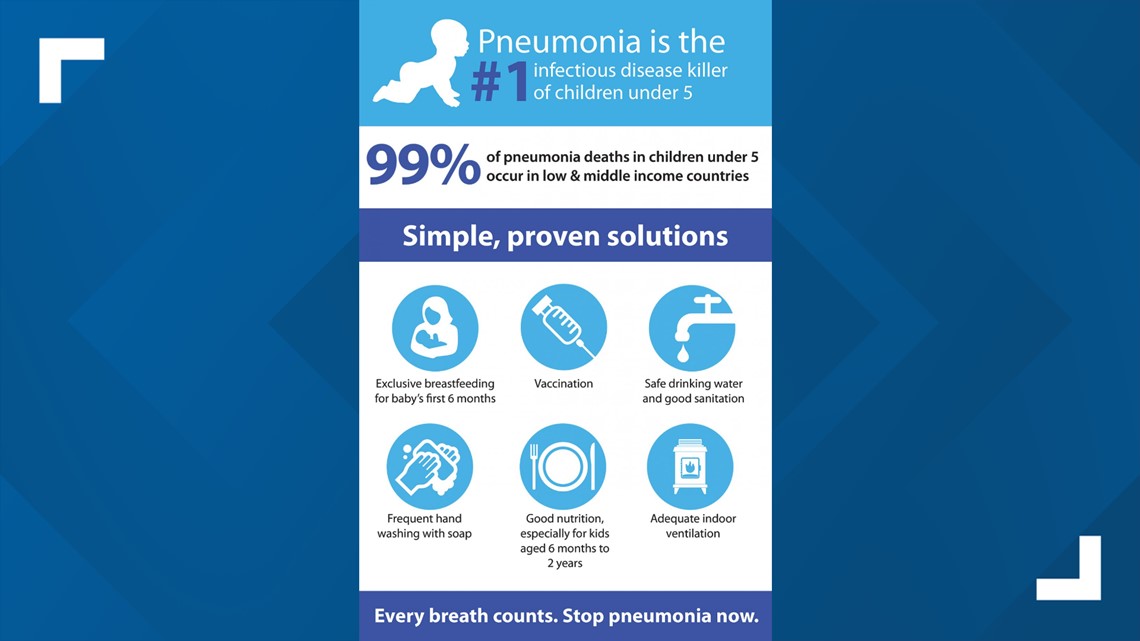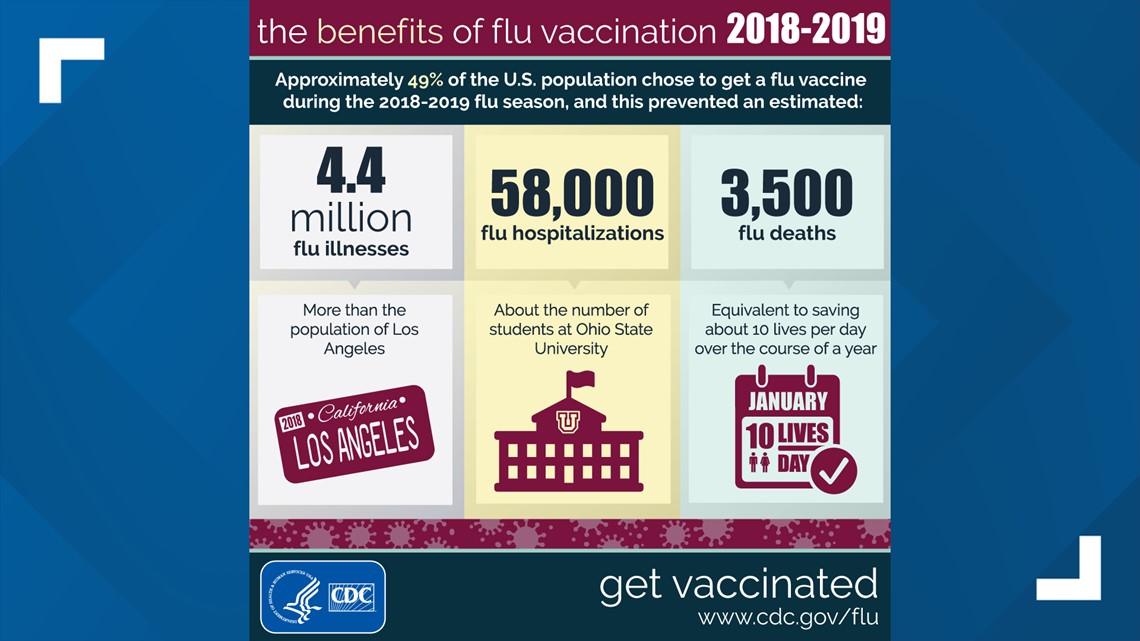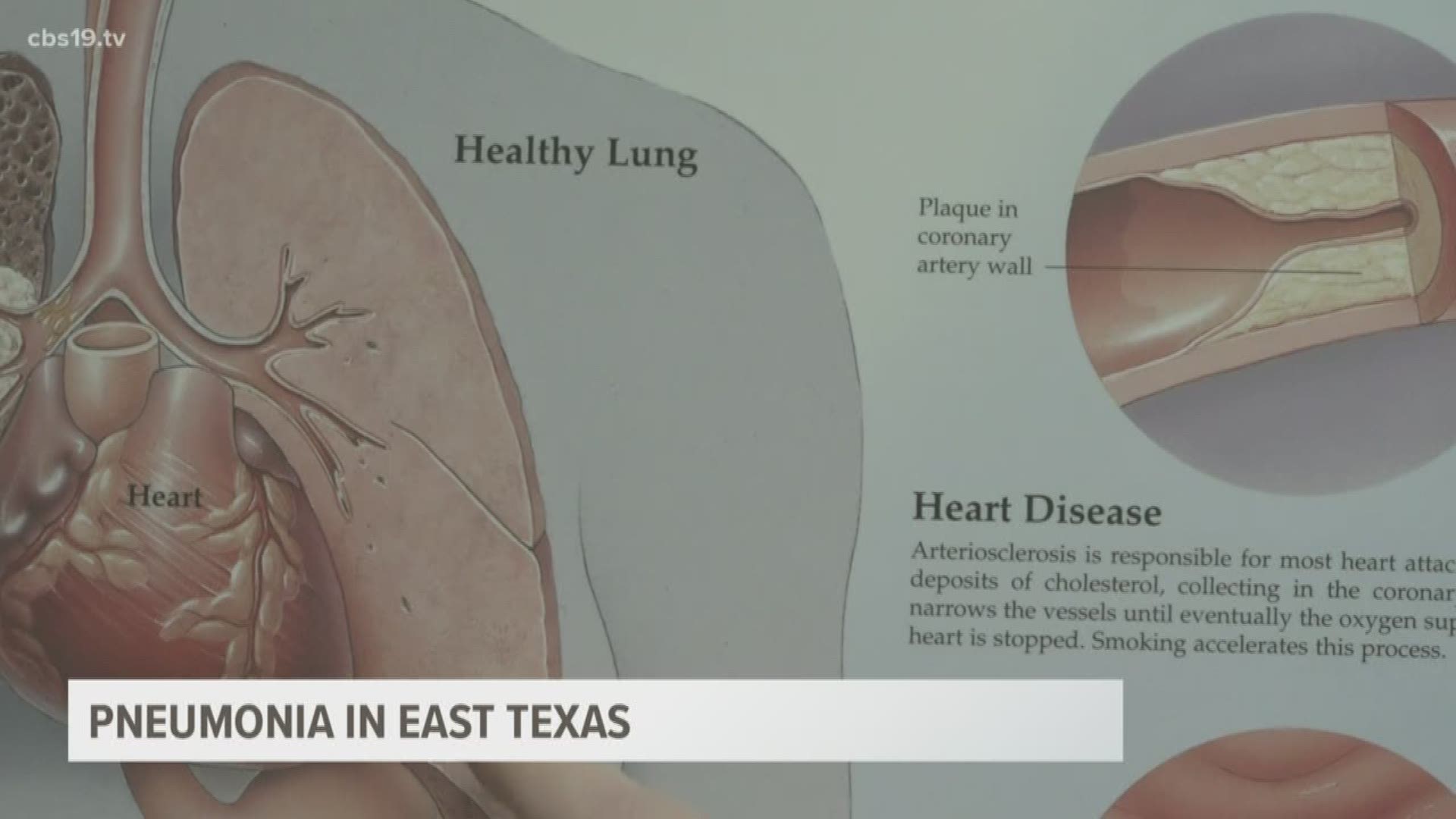TYLER, Texas — Though Texas is experiencing a particularly active flu season, doctors are also seeing a rise in pneumonia cases, as well.
"Pneumonia is a very serious infection of the lung," Dr. Jordan Owens of Christus Trinity Mother Francis said. "It can sometimes be caused by bacteria or viruses, but they typically do need to be treated with either antibiotics or observation with a clinician or doctor."
While pneumonia is a serious infection, regardless of age, young children and elderly adults are especially vulnerable.
"The highest risk group is going to be children younger than five and older patients older than 65," Dr. Owens explained. "They're going to be the most susceptible and they're actually at the greatest risk for mortality."
The flu and pneumonia should not be confused and do have distinct symptoms.
According to Piedmont Healthcare, pneumonia comes with the following symptoms:
- Bluish fingernails and lips
- Chills
- Coughing that may include yellow, greenish or bloody mucus
- Decreased appetite
- Extreme fatigue
- Fever up to 105 degrees
- Pain when breathing deeply
- Quick heartbeat and breathing
- Sweating
- Trouble catching breath


In addition to these symptoms, older adults may experience confusion while younger children may begin wheezing.
The flu does have similar symptoms, including extreme fatigue, fever and coughing.
RELATED: WALGREENS FLU INDEX: Some East Texas cities seeing elevated flu activity as kids head back to school
However, a flu fever is typically above 100.5 and the coughing is dry, as opposed to a more wet cough with pneumonia. Other flu symptoms may include headaches and body pains.


There are two vaccines available for pneumonia: PCV13 and PPSV23.
According to the CDC, children younger than two and people between the ages of two and 64 with certain medical conditions should get PCV13. Adults 65 and older should discuss with their doctor to determine if PCV13 is best for them.
People with certain medical conditions who have asthma or smoke cigarettes should receive the PPSV23 vaccine at the age of 19 through 64, otherwise, they should until age 65.
Unlike the flu vaccine, people do not have to get vaccinated for pneumonia each year. In fact, one vaccination should be enough for most people. However, some people may need multiple doses or boosters.
While pneumonia does not change often, the flu virus is constantly mutating, creating the need for a new vaccine each season. The CDC recommends all people six months and older to get the flu vaccination.
People should consult their doctor if they are concerned about allergic reactions to either the flu or Pneumococcal vaccines.

